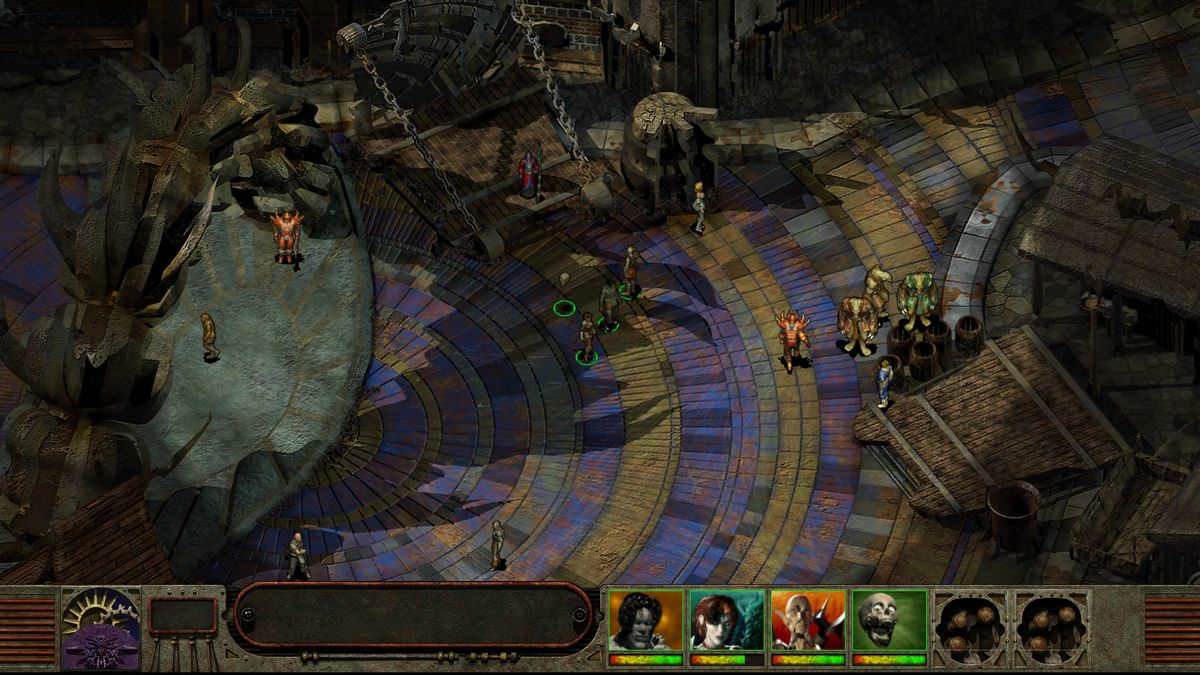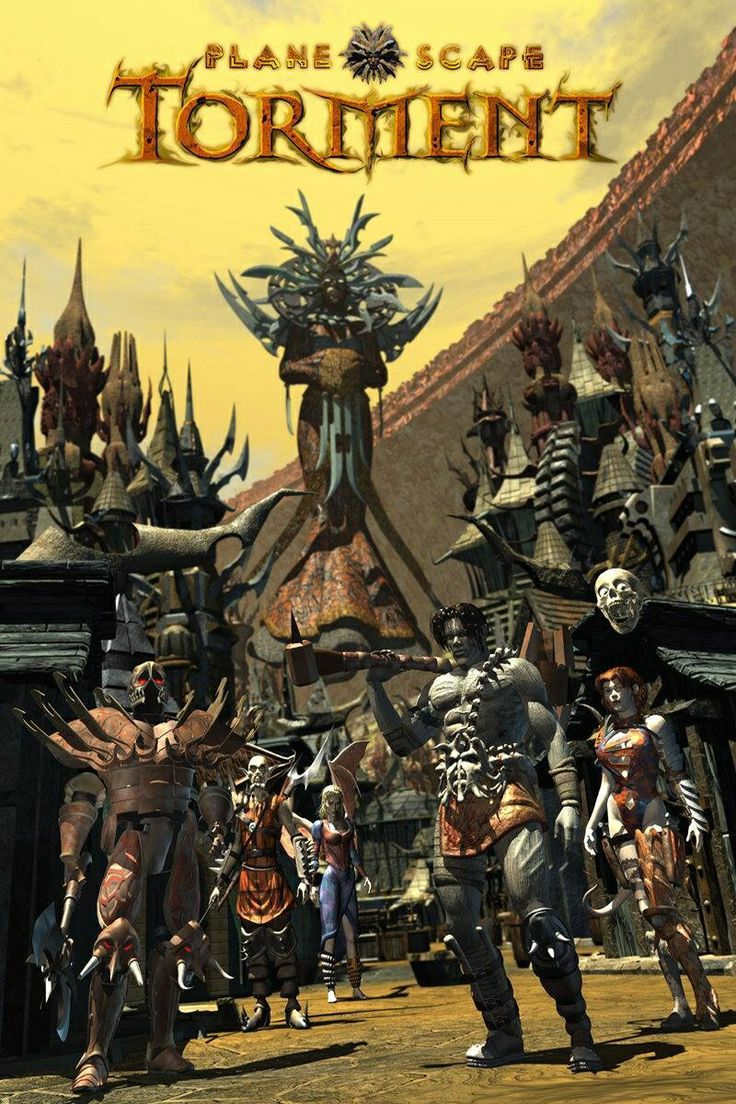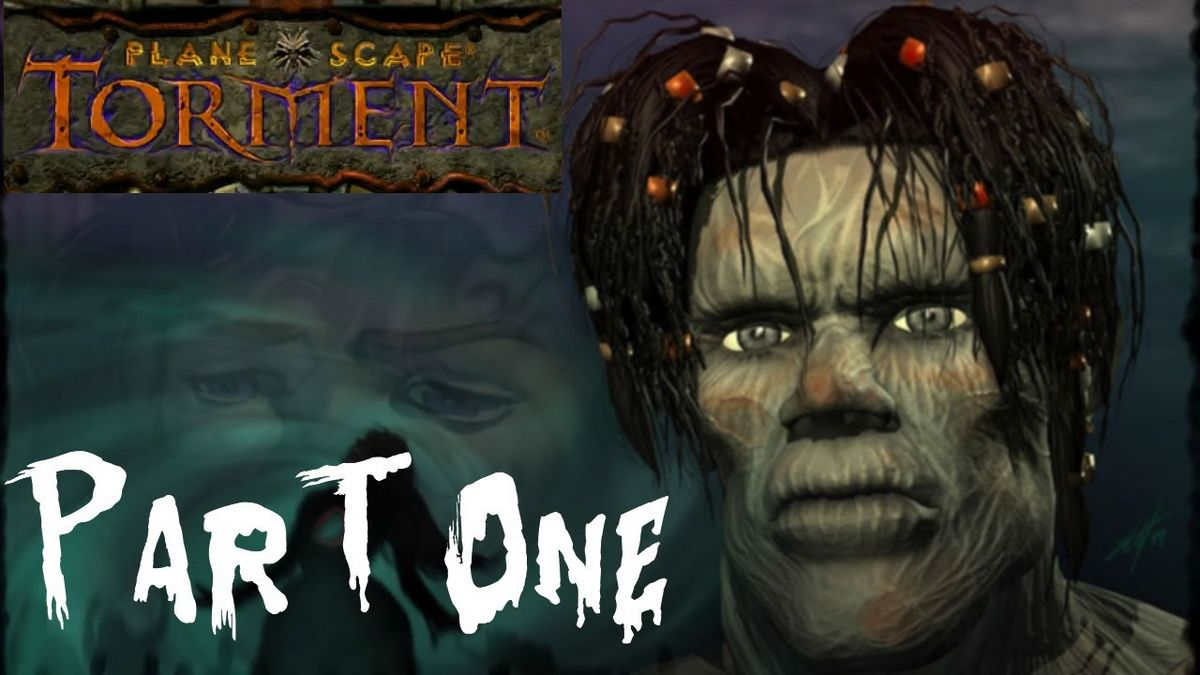
Planescape: Torment is a classic role-playing game that has captivated gamers for over two decades. Developed by Black Isle Studios and released in 1999, Planescape: Torment takes place in the Dungeons & Dragons universe of Planescape. The game follows an amnesiac immortal known as The Nameless One, who wanders through the dark and mysterious city of Sigil. As players navigate through the intricate storyline, they encounter a diverse cast of characters from various planes of existence while uncovering secrets about their own identity.
The game’s unique setting and philosophical themes have made it one of the most critically acclaimed RPGs of all time. With its emphasis on player choice and character development, Planescape: Torment stands out among its peers as a masterpiece in storytelling and gameplay. In this article, we will dive deep into the world-building, mechanics, and narrative structure that make Planescape: Torment such an enduring classic among RPG fans around the world.
- The Narrative Complexity of Planescape: Torment: An In-Depth Analysis of its Storytelling Techniques
- Uncovering the Philosophical Themes and Concepts within Planescape: Torment’s Plotline
- Character Development in Planescape: Torment: Examining the Growth, Change, and Motivations of Key Figures
- Gameplay Mechanics in Planescape: Torment – A Critical Review of Its RPG Systems and Combat Features
- Legacy and Impact – Exploring the Influence that Planescape: Torment had on Modern Gaming Industry
The Narrative Complexity of Planescape: Torment: An In-Depth Analysis of its Storytelling Techniques
The game’s story follows an immortal being known as The Nameless One as he sets out on a journey to recover his lost memories and discover the truth about his existence. Along the way, players encounter richly-detailed characters with their own complex backstories and motivations.
One of Planescape: Torment’s key storytelling techniques is the use of dialogue choices that can significantly impact both gameplay and story progression. Players are frequently presented with choices that have moral implications, forcing them to consider the consequences of their actions. This creates an immersive experience in which players must actively engage with the world around them rather than simply following a linear plotline.
Another notable aspect of Planescape: Torment’s narrative complexity is its multi-layered themes exploring morality, identity, and mortality. Through its intricate storyline and unique setting within the Planescape multiverse, the game encourages players to question what it means to be alive and human. This depth adds richness to what could easily have been just another fantasy RPG tale.

Overall, Planescape: Torment remains a masterclass in video game storytelling due to its memorable characters, branching narratives decisions system that makes every playthrough unique for each player while still maintaining an overarching theme throughout all outcomes. Its approachable yet thought-provoking exploration into questions we all face at some point in our lives has solidified it not only as a classic RPG but also one of gaming’s most extraordinary feats when it comes down to narrative complexity done right!
Uncovering the Philosophical Themes and Concepts within Planescape: Torment’s Plotline
At its core, the game tells a deeply philosophical story that explores themes such as identity, mortality, and human nature. The main character is an immortal being known as “The Nameless One,” who wakes up in a mortuary with no memory of his past lives or how he became immortal.
As players progress through the game’s rich narrative, they encounter numerous philosophical concepts and themes woven into the plotline. For instance, The Nameless One grapples with questions about personal identity and what it means to be truly alive. He also reflects on the idea of destiny and whether individuals are predestined for certain paths in life.
Another central theme within Planescape: Torment is morality and ethical dilemmas. Players must make difficult choices throughout the game that affect both their own character development and the fates of other characters within the story. These choices often involve moral gray areas that challenge players to consider their own values and beliefs.
Ultimately, Planescape: Torment stands out not only for its immersive gameplay mechanics but also for its thought-provoking exploration of complex philosophical ideas. It remains a masterpiece in video game storytelling today, continuing to inspire new generations of gamers to engage with deep questions about humanity’s place within existence itself.
Character Development in Planescape: Torment: Examining the Growth, Change, and Motivations of Key Figures
The game’s key figures undergo significant growth, change, and motivations throughout the course of their respective journeys.
The player takes on the role of “The Nameless One,” an immortal who has lost his memory and must embark on a quest to rediscover his past. Alongside him are several companions with whom he forms complex relationships over time. These characters are not static; they evolve based on the choices made by both the player and themselves.
One example is Morte, a floating skull who initially serves as comic relief but gradually reveals himself to be deeply troubled by regrets from his past life. Another is Annah-of-the-Shadows, a hardened thief whose abrasive exterior belies her deep-seated desire for connection and belonging.
Through dialogue trees that allow players specific conversation options in interacting with these companions (as well as NPCs), Planescape: Torment immerses players in a rich web of character interactions that can significantly impact how events unfold within the game world. This creates an experience akin to reading a novel or watching a film where each decision made contributes meaningfully towards shaping both individual characters’ arcs and broader story themes such as mortality, redemption, forgiveness, and loyalty.
Gameplay Mechanics in Planescape: Torment – A Critical Review of Its RPG Systems and Combat Features
The RPG systems in Planescape: Torment are well-crafted, offering players choices that impact the story, character development, and combat outcomes. One of the standout features of this game is the dialogue system which presents players with complex conversations featuring branching paths based on player responses.
In terms of combat mechanics, Planescape: Torment offers a real-time-with-pause system where time can be slowed down or stopped completely to allow for tactical decisions to be made mid-battle. This adds an extra layer of strategy to battles as it gives players more control over their actions and allows them time to plan out their next move. Additionally, the game’s unique spellcasting system is another aspect that sets it apart from other RPGs as it requires memorization of spells rather than relying solely on mana points.
Overall, Planescape: Torment’s gameplay mechanics offer depth and complexity that will keep gamers engaged throughout their playthroughs. Its intricate systems provide challenging scenarios while also allowing for creativity in player decision-making during both conversation encounters and battles alike.
Legacy and Impact – Exploring the Influence that Planescape: Torment had on Modern Gaming Industry
It’s known for its unique characters, immersive world-building, and philosophical themes. The game’s impact on the gaming industry cannot be overstated.
One of Planescape: Torment’s most significant influences on modern games is its emphasis on storytelling. The developers placed an incredible amount of effort into crafting the game’s narrative, which allowed players to create deep connections with their characters. This approach has been adopted by many contemporary RPGs, such as Mass Effect or Dragon Age series.
Another legacy of Planescape: Torment can be seen in the way it approached morality within gameplay mechanics. Rather than being restricted to simple good or bad choices, the player is forced to navigate complex moral dilemmas throughout the story. These decisions influence both character development and plot outcomes in meaningful ways – creating more nuanced experiences where every choice matters.
Finally, Planescape: Torment challenged conventional notions of what an RPG could be by introducing new gameplay elements like non-linear quest design and dynamic conversations between NPCs (non-player characters). This innovative design made for incredibly immersive gameplay that captivated audiences at release time till today.
In conclusion, I believe that Planescape: Torment had a profound impact on modern gaming industry due to its exceptional writing style along with unparalleled attention given towards philosophy making it ahead of its time when compared to other games available during its era – something which still holds true even today!
In conclusion, Planescape: Torment is a masterpiece of storytelling and world-building that has stood the test of time. Its unique setting, complex characters, and philosophical themes continue to captivate players decades after its initial release.

The game’s innovative use of dialogue trees and player choices elevates it above typical RPGs and allows for a truly immersive experience. The writing is expertly crafted with intricate plot twists and shocking reveals that keep players engaged from start to finish.

Moreover, the game‘s adherence to the Dungeons & Dragons rule set adds an additional layer of depth for those familiar with tabletop gaming. This attention to detail not only enhances gameplay mechanics but also provides a sense of familiarity for fans of the genre.
Despite being released over 20 years ago, Planescape: Torment continues to influence modern gaming through its impact on narrative-driven games such as The Witcher series or Disco Elysium. It remains a shining example of how video games can be used as powerful tools for storytelling.
Overall, Planescape: Torment is a must-play title for any serious gamer or lover of great stories. Its enduring legacy serves as a testament to the power of interactive media in creating unforgettable experiences that stand the test time.
Read More:- Unleash your power with Titan Quest: Immortal Throne – the ultimate RPG game.
- Discover the Epic Journey of Lost Odyssey Game: Immerse Yourself in a World of Fantasy and Adventure!.
- Discover the Epic Adventure of Baldur's Gate: The Ultimate Guide to this Legendary Game!.
- Discover the Epic World of NieR: Automata – Game of the YoRHa Edition!.
- Unravel the Mysteries of Revachol in Disco Elysium – The Ultimate Detective Game!.
- Discover the Mind-Bending Puzzles of The Talos Principle: Deluxe Edition – Available Now!.
- Discover the Epic Conclusion of Xenosaga: Episode III – Also sprach Zarathustra Game in 70 Hours!.